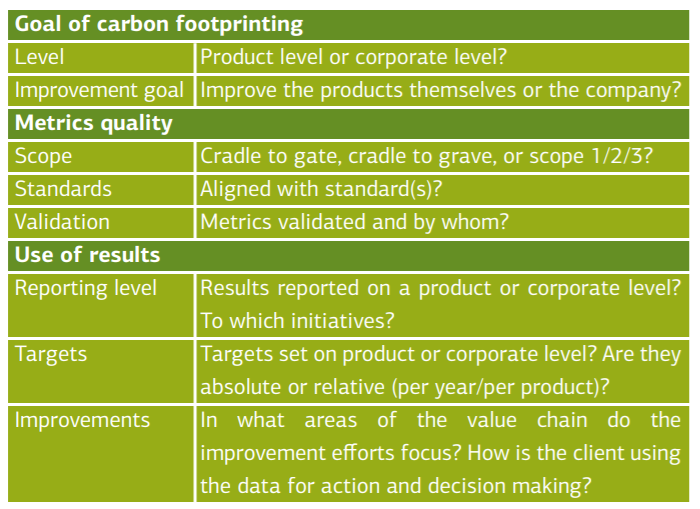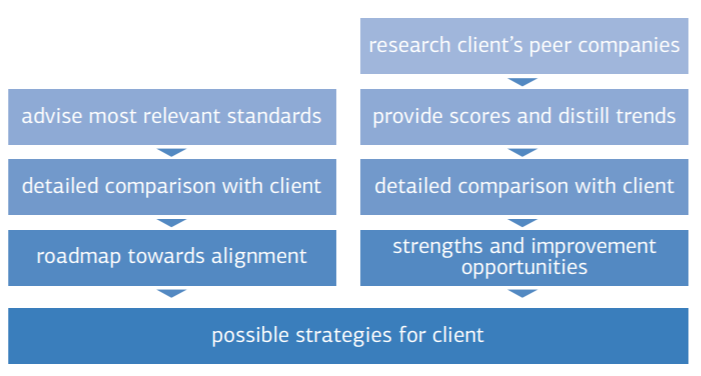Verification of carbon footprint metrics system for a beverage company
For a large Dutch beverage company, PRé did an independent verification of their carbon footprint metrics system. This helped discover opportunities for improvement, and provided guidance to drive additional business value.
Challenge
The client, a large Dutch beverage company operating with multiple brands across the global market, already has an elaborate and comprehensive carbon footprint metrics system in place. This system is used to benchmark their impacts at a product and corporate level, identify hotspots and steer improvement efforts. They have asked PRé to compare the quality and robustness of this metrics system against relevant standards, as well as the carbon assessment activities of peer companies.
Solution
PRé researched both product and corporate carbon footprinting standards. Then, PRé advised the client on the most relevant guidelines based on two points:
- Their sector
- Their short and long-term goals.
The client’s metrics system was compared in detail to the requirements set by relevant standards. Based on this analysis, a roadmap for alignment was created. This set of recommendations stated what actions the client should take to achieve both alignment and best practice. The roadmap provided recommendations at three levels of priority. In addition, PRé researched the carbon footprinting activities of the client’s peer and competitive companies by collecting publicly available information. The findings were summarized based on three categories, as presented in figure 1.

For comparability, the peer companies were scored for both metrics quality and use of results to drive action and decisions. In addition, trends were distilled from the collected information to provide insight into common sustainability strategies. Finally, the client’s activities were compared to the results to determine strengths and areas for improvement.
The results of the comparison to the relevant standards and peer companies were summarized (figure 2) via different strategies the client could potentially pursue. PRé included the required effort and expected benefits for each action. This allowed the client to make informed decisions on the future development of their carbon footprinting metrics.

Benefits
The client has gained valuable insight into the quality of their carbon footprinting metrics system. The client is also now aware of all options for further improvement — and what actions need to be taken to achieve alignment. This drives the following business value:
- Improve internal and external reporting and reputation: Expect higher performance from internal environmental audits or external ratings bodies (CDP, DJSI).
- Improve efficiency of impact reduction and company resources: Confidence that the right areas of risk and opportunity are being addressed and tracked.
- Understand and improve competitive edge: Benefit from a competitive advantage, enhanced reputation, and the opportunity for product innovation.